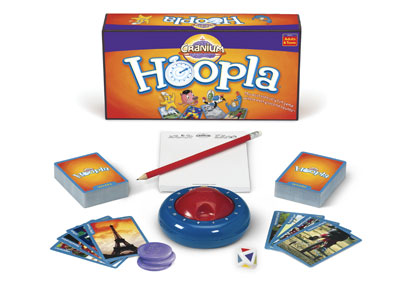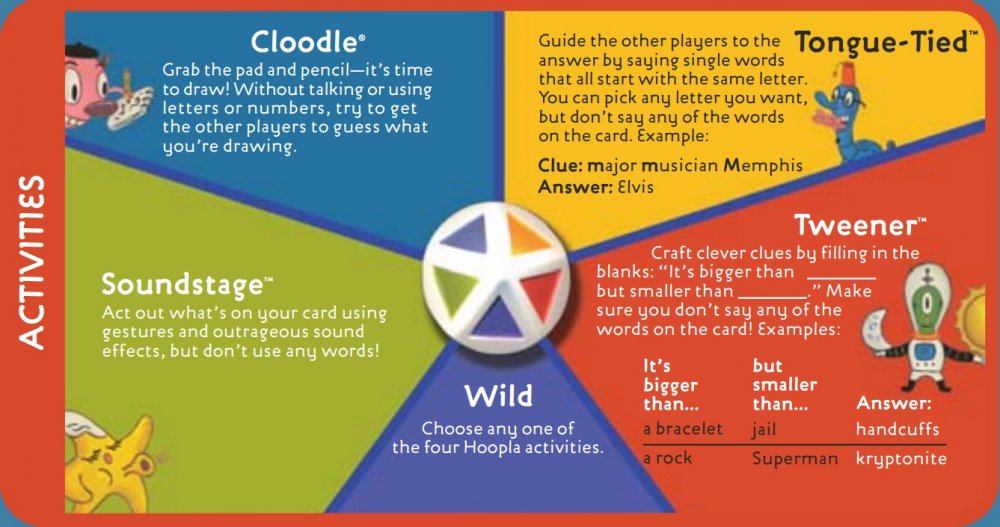
The answer to this problem is Cranium Hoopla. Hoopla is similar to the original Cranium, but changes things up enough to make it its own entity. Players have a hand of four cards, each with a picture of a Who, What, or Where. Players roll a die to determine which activity they will use to get the others to guess one of their cards. There are four different types of activities, each of which will serve a particular type of player. Sketching and charades from Cranium appear alongside Tweeners, where you describe something as “smaller than _____, but larger than _____”, and Tongue-Tied, where you use alliteration to make your point.
The cooperative aspect comes in beating the timer. The goal is to get through your hand, as well as a stack of eight cards, before time expires. The timer lasts for fifteen minutes, which means you can’t spend too long on any one card. If no one guesses your card, you have to draw another as a penalty. Cards guessed correctly are added to a “Hall of Fame” stack, and play proceeds to the next player. Like Cranium, it sounds simple but is deceptively difficult and very, very fun.

Cranium Hoopla isn’t an exact replacement for the original game, but it generally scratches the same itch. It fixes many issues in Cranium, too. Everyone gets involved, is cooperating, and having a good time. It also takes far less time to play, and doesn’t ever get frustrating. I look back on Cranium fondly, but Hoopla is really a far better party game. I’m not aware of any other party games that are as cooperative in nature, making Hoopla unique.
Sadly, Cranium Hoopla is out of print, and hasn’t been on store shelves for quite some time. All of the Cranium games were fairly popular, meaning Hoopla had a good sized print run, and thus it is fairly easy and inexpensive to pick up a copy on Ebay, or even at your local thrift store or a garage sale. If you are looking for a quick-playing, fast-paced cooperative game to bust out at your next get together, Cranium Hoopla is a fine choice.